Captain Marvel is a movie that faces a surprisingly hard storytelling problem:
How do you create real emotional stakes in a story about the most powerful character in the universe when she could effortlessly defeat almost any threat she meets?
The answer that screenwriters Geneva Robertson-Dworet and Anna Boden & Ryan Fleck (who also co-directed the film) came up with is genius. That’s not just because their solution elegantly solves this problem, but because it interweaves the movie’s theme, character, and story structure into a composite whole that works on three different levels.
So let’s break down why Captain Marvel has such an effective story structure, and how it uses our own expectations to make its thematic payoff so powerful.
WARNING: SPOILERS AHEAD for Captain Marvel — and while I’m usually dismissive about the impact of spoilers, this movie actually does work better if you don’t know what’s coming next.
Level One: Captain Marvel’s Plot
First, let’s be honest:
Marvel screenwriters have a more complicated job than they ever get credit for.
Not only do they have to tell a story that succeeds as a stand-alone movie, but it also has to fit into the established canon of the other 20+ MCU films…
… and it needs to set up audience interest in the next movie in the series while still tying up enough of its own loose ends to feel satisfying by itself…
… plus it’s expected to include as many easter eggs, deep cuts, and fan service moments as possible to give the commentary and analysis industry something to talk about before, during, and after the movie’s release.
On top of that, Captain Marvel is also an origin story, about the most powerful character in the MCU…
… whom we somehow haven’t seen or even heard of in the past 20 movies, aside from an end-credits bonus scene cameo of just her logo at the end of Avengers: Infinity War…
… and whom the general public is probably far less familiar with or emotionally invested in than any other MCU hero yet.
Easy, right?
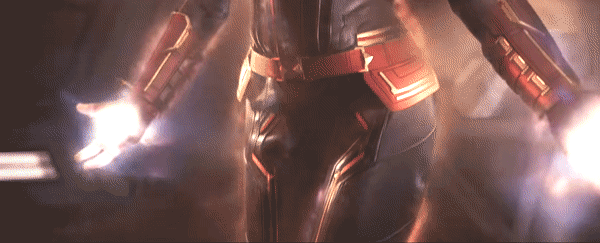
Robertson-Dworet and Boden & Fleck’s solution is to structure this movie as a series of mystery reveals that build to a twist climax in which external knowledge matters less than internal awareness.
In other words: it’s a mystery box where the answer is inside you.
No, not inside our hero Captain Marvel, aka Carol Danvers, aka Vers (Brie Larson).
Inside you.
How does that work? Well, let’s go one level deeper.
Level Two: Captain Marvel’s Character
Just like Carol Danvers, the movie itself has multiple identities, and rectifying all of them into a satisfying whole is nearly impossible.
Captain Marvel arrives as the 21st film in the MCU, but it’s the first to star a female hero. She’s also just the second Hollywood superhero headliner behind DC & WB’s Wonder Woman in 2017, despite the fact that there have been female comic book superheroes since the 1940s.
This film also arrives in the sociopolitically supercharged moment of 2019, in which identity and representation in our media (and our society as a whole) is more closely scrutinized than ever before.
RELATED:
All of this means that Captain Marvel is many things to many people, all at once.
As the product of a publicly-traded company, it’s a product that’s expected to make a profit.
As a piece of pop culture entertainment, it’s striving to satisfy the narrative and emotional needs of a wide variety of audiences.
And as a topical release from the most powerful film studio on the planet, it’s hoping to exceed all artistic and subtextual expectations, thus proving that its existence isn’t just a nod to shifting identity politics but also a justifiable commercial hit with critics and audiences alike, in the U.S. and around the world.
Like I said: totally easy, right?
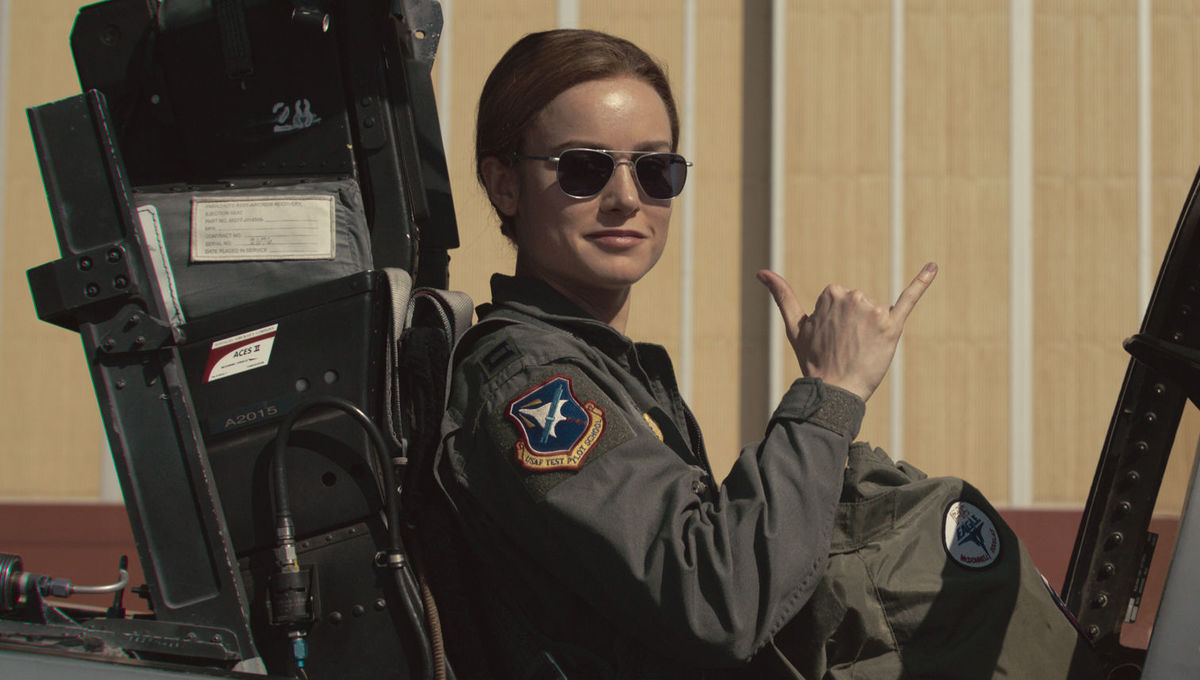
The filmmakers’ answer is to create a character who can somehow shoulder all of these expectations while still being charming, inspirational, relatable, and so compelling that we’ll want to see her again as soon as possible. (That’s key, since Captain Marvel is expected to be a pivotal part of Avengers: Endgame… which opens barely a month after Captain Marvel debuts onscreen. Talk about crossing your fingers while rolling your dice at the same time.)
Thankfully, Marvel made the brilliant decision to cast Academy Award-winner Brie Larson as Carol. With over a decade of indie films under her belt, Larson delivers the same level of instant likability-meets-authority to her role that Tony Stark required from Robert Downey Jr. in Iron Man 10 years ago.
RELATED:
Larson’s trademark sass, scowl, and smirk help make Carol someone we enjoy spending time with, and her “let’s just hack our way through it and figure it out as we go” attitude is both an endearing trait and a bottomless well of character-driven storytelling complications.
But even with Larson’s natural appeal, the film would ultimately fail if her character arc didn’t keep us hooked.
Here, the film plays its second trick: it gives us more information than it gives Carol.
This keeps us rooting for her to figure out more clues so she can ultimately solve her own mystery and become the person we know she’s capable of being. Our payoff isn’t in getting a specific answer to the mystery, but in seeing a fractured whole restored.
But this storytelling tactic also carries a risk.
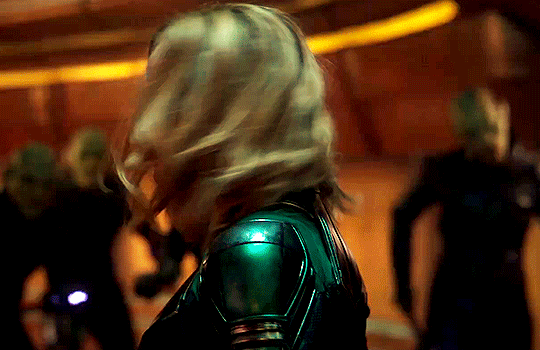
There’s a fine line between giving the audience enough information so that we’re eagerly anticipating what the protagonist will do when she catches up to us vs. giving us so much information that it makes the hero seem less capable for not being able to figure things out as fast as they were handed to us. (Think of any mystery you solve before the onscreen detective does. If the story’s payoff is structured solely around that big logical reveal, the ending fails.)
Captain Marvel solves this problem by creating a new mystery with every question it answers.
Vers doesn’t recognize the mentor she sees when she communes with the Supreme Intelligence? Well, we can guess who it is… but now we’re wondering how they got into that dangerous situation in the memory she does see.
The Skrulls are extracting more of Vers’s memories and we’re seeing that she’s actually a human, not a Kree? Well, we can guess what that means… but now we’re wondering why the Skrulls were really after the coordinates she saw in that one particular memory.
In addition to making Carol the detective of her own mystery, she also attracts several friends who help the screenwriters solve their other big storytelling problem: how do you make the audience worry about a character who’s essentially invulnerable? The answer, as Lois Lane and Jimmy Olsen long ago demonstrated to Superman fans, is to give her very mortal sidekicks whose fates we really do have to worry about.
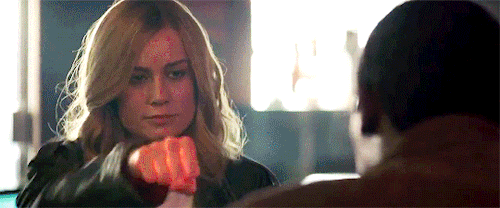
Here, a younger and more laid-back Nick Fury (Samuel L. Jackson), Carol’s best friend and rival pilot Maria (Lashana Lynch), and Maria’s daughter Monica Rambeau (Akira Akbar) — whom comic fans strongly suspect will grow up to become a hero all her own in the next phase of the MCU — each provide Carol with ample opportunities for buddy comedy and emotional catharsis.
They also give the audience a chance to fret over what’s going to happen next, since we’re pretty sure Carol will emerge from this story unscathed but we can’t necessarily say the same thing for her friends, her cat, or Fury’s eye.
But the characters we actually wind up worrying about the most are the ones we expect to care about the least — and that’s part of Captain Marvel‘s most crucial twist.
Level Three: The Themes
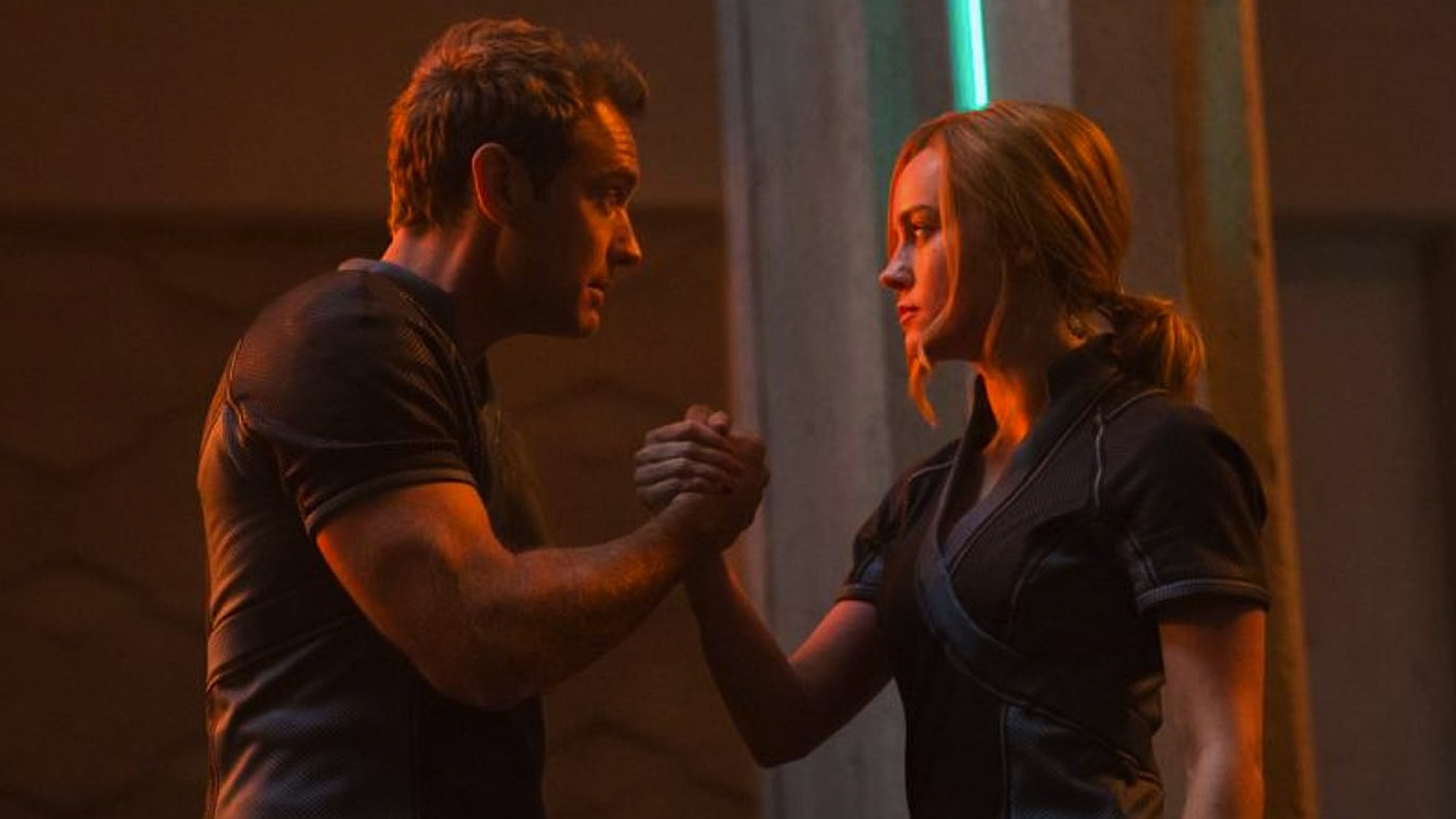
Quick: what do you learn about Captain Marvel in its first act that’s still true by the end?
Is Vers really a Kree warrior?
Is the Kree-Skrull war really a noble battle between warring empires?
Are Carol’s emotions really her biggest problem?
The film’s first act does a lot of heavy lifting in terms of establishing the narrative and building character. But its most impressive feat is that nearly everything we learn in the first 20 minutes is a lie. And by putting us inside Carol’s POV, we get to experience the impact of each lie as she unravels it. This not only helps us empathize with her, but it also serves the film’s most important purpose:
Captain Marvel asks us to question what WE believe, and why.
At first, this is done subtly by subverting expected storytelling tropes.
For example, by first introducing us to the Kree Starforce and making us worry about their wellbeing during a dangerous offworld mission, we’re automatically on their side because the movie tells us we should be.
Later, when we find out the reasons for the Kree-Skrull war are very different from what we’ve initially been told, we struggle to recontextualize everything we’ve seen up to this point and reconsider that the villains may actually be the victims.
This leads to Carol’s ultimate breakthrough, when she finally corrects the false memories that have been implanted in her mind and remembers who she really is, how she really acquired her powers, and who’s responsible — and this forces us to accept that what we’ve been told she (and we) should want is actually false.
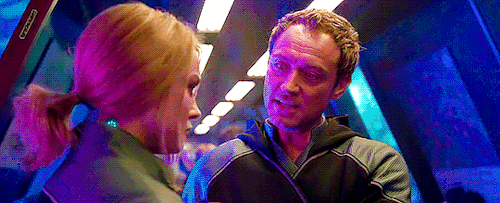
It’s fitting that Marvel’s first stand-alone female film, which coincides with the era of #MeToo and #TimesUp, stars a character whose arc revolves around redefining herself on her own terms after years of being literally defined by the expectations of others.
But Captain Marvel also wrestles with another hot button issue of our time: fake news.
What do you do when you can’t be sure if anything you hear, read, or see is true? How do you make decisions when you’re not sure whose agenda your actions are really advancing?
At that point, all you can do is rely on your own lived values.
In Captain Marvel’s case, that means standing up to the very people she thought her were friends and doing whatever she can to protect the refugees whom she had been told were her enemies.
It also means overcoming the self-limiting beliefs they had been selling her under the guise of helping her — which, crucially, mirrors the situation many people find themselves in when they’re facing the prospect of leaving an abusive relationship.
When Captain Marvel questions the lies the Supreme Intelligence has been feeding her, she’s mocked and insulted, and told that she’s weak. Her “mentor,” Yon-Rogg (Jude Law), insists that he’s been helping her become “the best version of herself,” and that she’s ungrateful for all they’ve done. They’ve gotten so deep inside her head and her own self-awareness that they even threaten to remove her powers — “what has been given can be taken away” — even though all they ever did was install a power-dampening device that doesn’t bestow her abilities but actually limits them so she can be controlled to better serve their needs.
All of which brings us back to this post’s original question:
How do you create emotional stakes in a story about the most powerful character in the universe?
You make her overcome the one villain she can’t beat through power alone:
Doubt.
And that’s what makes the climax of Captain Marvel arguably the best hero-villain showdown the MCU has given us yet.
Why Captain Marvel‘s Ending Works So Well
For as good as Marvel movies tend to be, their grand finales usually leave a little something to be desired.
From the moment Iron Man devolved into twenty minutes of him and Ironmonger throwing buses at each other to the final showdown between Black Panther and Killmonger that tried to solve a complex sociopolitical debate with the equivalent of an MMA fight on a subway rail, the trend was clear: Marvel movies have trouble sticking the landing.
Enter: Yon-Rogg.
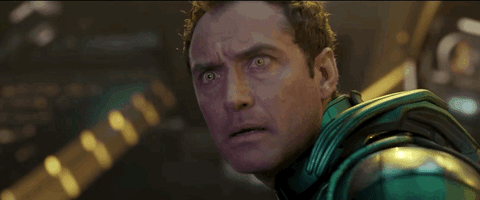
For me, the best moment in the entire film is the moment when Yon-Rogg faces off against Carol in the desert with their weapons drawn, and Yon-Rogg — who has just literally watched Carol destroy warheads with her bare hands — realizes this may not be a fight he can win fairly.
In that moment, Jude Law expertly turns the tide by tapping into his own bottomless well of smarm.
“I am so proud of you,” he says, holstering his weapons and instead opting for psychological warfare. He tries to reassert himself as her mentor and to change the rules of engagement by insisting that only if she defeats him in no-powers, hand-to-hand combat can she ever truly be considered victorious and free.
This is what abusers, manipulators, and controllers do. It’s this reassertion of a mutually-believed lie that keeps people in shitty relationships, toxic friendships, soul-crushing jobs, and lifelong family dramas that never end.
But Carol isn’t having it, because Carol has seen the light.
Her ultimate victory isn’t over Yon-Rogg, or over Ronan the Accuser’s battallion of warships.
It’s over the self-limiting lies she’s been accepting as truths because they gave her life a structure she thought she needed.
By defeating that villain — the one that lives inside us all — she provides the emotional catharsis that no amount of planet-smashing could ever provide.
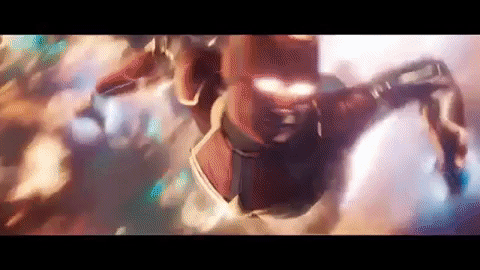
(Granted, this was still super cool)
If this was just a film about Carol Danvers overcoming gaslighting, we’d simply be empathizing with her experience. But the sript, its story structure, and its subversion of the tropes it establishes makes us simultaneously complicit in and also victims of that gaslighting.
By offering us the opportunity to ask ourselves “why did I believe that just because I was told to,” it opens the door for us to have deeper conversations and internal inquiries about our OTHER beliefs, which we often tend to believe because we think others hold the answers to our questions.
The lesson of Captain Marvel isn’t just that you should keep getting up whenever you’re knocked down — although that’s also true, and empowering, and absolutely emblematic of why Marvel movies are so beloved around the world.
The movie’s bigger lesson is that the only way any of us can ever truly unlock our full potential is to stop expecting our validation to come from others.
That, and never get too close to a cat no matter how friendly it seems.
More Posts About Marvel
WandaVision’s Biggest Question Gets Deep: Who Are We, Really?
How Avengers: Endgame Succeeds on the Strength of Marvel’s Characters
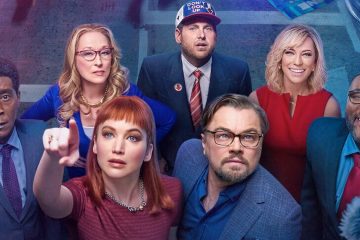

3 Comments
Ryan · July 30, 2023 at 5:14 pm
Is this a joke? She beats the villain in the first scene. Although, one could argue that she did it by cheating. She also doesn’t show any vulnerability to psychological manipulation. Sure, they changed her memories, sort of, but the first thing we learn about her is that she doesn’t follow orders, going so far as to use her powers during a training fight.
Granted, using her powers as part of the real fight is justified, but she just did at the end the same thing she did at the beginning.There was no mutually believed lie.
Joel Brandt · December 16, 2019 at 2:53 am
Hey, great analysis! I’m writing a paper on the power of storytelling and using Captain Marvel as a case study–hope you don’t mind if I cite your essay! :)
Marie · April 11, 2019 at 6:09 am
Finally! Thank you!!! ❤️❤️❤️